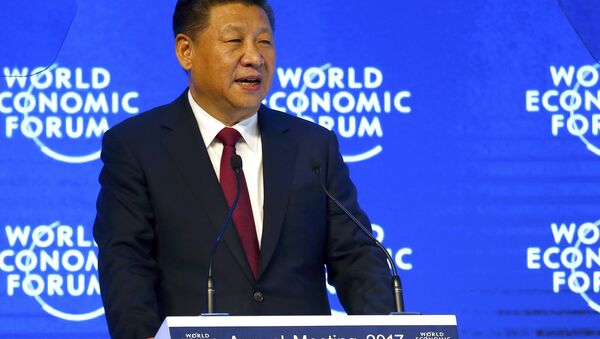The Chinese president admitted that for many people globalization has been the cause of the world's problems, however he said that it was wrong to blame everything on this.
Globalization is defined as the process by which businesses or other organizations develop international influence or start operating on an international scale, it has not been the most popular of subjects in the West recently. Governments are failing to prevent citizens from feeling left behind, which is seen as the cause of a lot of the recent political turmoil witnessed around the globe today.
This speech by Xi Jinping in praise of globalisation, while the US and UK retreat from it, sounds like a real juncture in history. #Davos
— Ferdinando Giugliano (@FerdiGiugliano) January 17, 2017
The arrival of President-elect Donald Trump has only added further ammunition to the argument that globalization is still very present in society, irrespective of any negative press it has had.
China's Xi Jinping defends globalization from the Davos stage: "It is true that economic globalization has… https://t.co/saqGADpVM0 #wef17 pic.twitter.com/BpzhjXdkCp
— WEF Context (@WefBot) January 17, 2017
The Chinese leader said that the migrant crisis and other problems were not the fault of globalization, but that other factors had contributed to their escalation.
"The migrant crisis was caused by war, conflict and regional turbulence, not globalization. Similarly, the 2007/8 financial crisis was caused by the excessive pursuit of profits and a lack of economic regulations," Xi Jingping said.
Xi also spoke of the growing populism movement in the West, stating that the world should not write off globalization altogether and that countries should "cushion the impact."
Xi's speech seemed to be aimed at the US President-elect Donald Trump who has already said that he will confront China when it comes to trade.
"Pursuing protectionism is like locking oneself in a dark room. Wind and rain may be kept outside, but so is light and air," he said.
World's most powerful communist, Xi Jinping, argues for free trade at Davos, while president-elect of 'free' world argues for protectionism.
— Benjamin Ramm (@BenjaminRamm) January 17, 2017
He told countries not to pursue their own interests at the expense of others adding that "no one will emerge as a winner in a trade war."
Xi's speech according to commentator Yun Sun, Senior Associate with the East Asia Program at the Stimson Center think tank in Washington and a non-resident fellow at the Brookings Institution, demonstrates that China supports trade.
"His speech indicated that China is a strong supporter of global trade and they want to facilitate this throughout the region and globally. That is in stark contrast to what Trump has been saying about trade," Yun Sun told Sputnik.
"The most interesting part of this message is that it seemed to be targeted at the Trump organization," Yun Sun added.
Xi also urged world leaders to stick to the Paris Climate change deal, despite Trump showing an interest in "canceling" the deal once he becomes US President.
However a recent survey from YouGov, a international market research firm, found that of more than 20,000 people across 19 countries, the majority believed that globalization is a force for good.
Our new international survey finds globalisation is still seen as a force for good in the world (except in France) https://t.co/02QwkekOPz pic.twitter.com/yMK8Ap53vw
— YouGov (@YouGov) November 22, 2016
With only a few days left before Donald Trump becomes the next president of the US, it seems that global leaders are trying to reassure nations and their citizens on the benefits of global trade.



